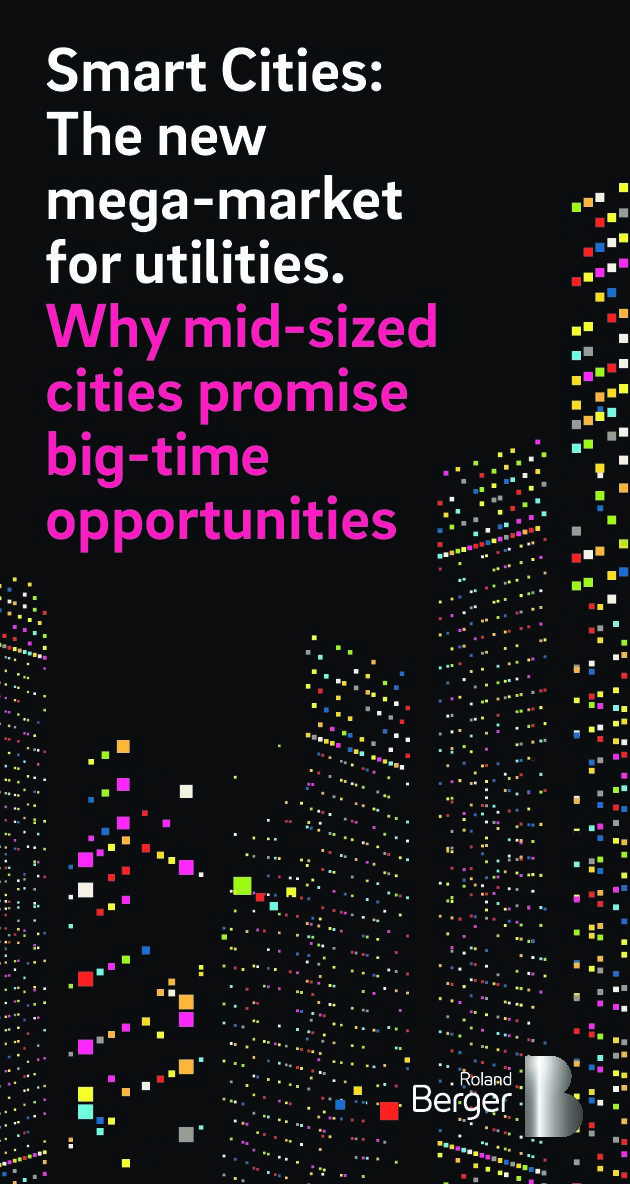
Cities are more important than ever before
More than 55% of the world’s population currently live in cities (1980: 39%). In Europe, the figure is even higher – about 75% of the continent’s population are city dwellers. And cities are not only popular places to live. They are also economic powerhouses, logistics hubs, administrative centers, drivers of innovation, forerunners of trends and attractive destinations for talent.
Smart City strategies offer solutions to cities’ problems
Their popularity means cities face many challenges: traffic jams, pollution, high energy demand, a large volume of waste, pressure on green areas to create space for buildings and streets, etc. There is no miracle cure for all of these problems, but the growing reach of digitalization offers a powerful solution: the Smart City. This integrated approach combines and coordinates a broad range of digital solutions, from urban planning to mobility and environmental services.
Mid-sized cities are ripe for Smart City solutions
Numerous studies exist on the Smart City approaches of big cities. But those of smaller cities have been largely neglected. Yet turning the focus on these cities is particularly interesting. In the EU, mid-sized cities, defined as urban areas with 100,000 to 500,000 inhabitants, are home to one third of the EU population living in any city with more than 50,000 residents. Mid-sized cities often lack the strategy, planning and financial resources that are available to large cities and critical to develop and implement Smart City solutions. In addition, mid-sized cities face the challenge of dealing with a large number of different infrastructures, stemming from their interconnection with their rural surroundings or neighboring cities.
Utilities are “natural” partners to support mid-sized cities with Smart City strategies
Utilities have all the know-how and capabilities to plan and implement an integrated approach, comprising smart energy supply, smart mobility, smart communication and smart buildings. In addition, they can provide financial resources, have experience of coordinating different stakeholders and can ensure that Smart City projects will be profitable.
This study sheds light on Smart City strategies of mid-sized cities in the EU. It looks at how utilities can support these cities in their Smart City strategy, thereby opening up a new mega-market for such organizations.
